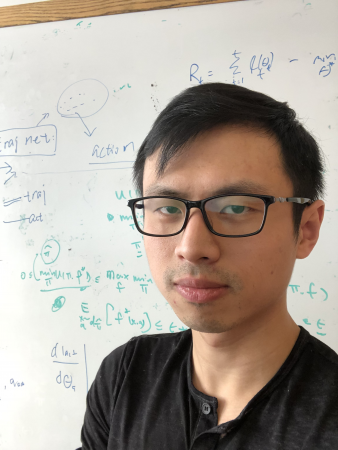Minimalist Visual Perception and Navigation for Consumer Drones
Abstract: Consumer drone developers often face the challenge of achieving safe autonomous navigation under very tight size, weight, power, and cost constraints. In this talk, I will present our recent results towards a minimalist, but complete perception and navigation solution utilizing only a low-cost monocular visual-inertial sensor suite. I will start with an introduction of [...]
2019 RI Faculty Dinner
RI Faculty Social
All Robotics Institute faculty are invited to attend this informal team-building business/social event. Beverages and snacks will be provided.
Social Perception for Machines
Abstract: Despite decades of progress, machines remain intelligent tools rather than collaborative partners in individual human enterprise. A key reason is that machine perception of inter-personal communication is largely unsolved and a computationally accessible representation of such behavior remains elusive. In this talk, I will describe our research arc over the past decade at CMU [...]
Geometry Processing in The Wild
Abstract: Geometric data abounds, but our algorithms for geometry processing are failing. Whether from medical imagery, free-form architecture, self-driving cars, or 3D-printed parts, geometric data is often messy, riddled with "defects" that cause algorithms to crash or behave unpredictably. The traditional philosophy assumes geometry is given with 100% certainty and that algorithms can use whatever [...]
Automatic Human Behavior Analysis and Recognition for Research and Clinical Use
Nonverbal behavior is multimodal and interpersonal. In several studies, I addressed the dynamics of facial expression and head movement for emotion communication, social interaction, and clinical applications. By modeling multimodal and interpersonal communication my work seeks to inform affective computing and behavioral health informatics. In this talk, I will address some of my recent work [...]
Service Robots for All
Robots have the unique potential to help people, especially people with disabilities, in their daily lives. However, providing continuous physical and social support in human environments requires new algorithmic approaches that are fast, adaptable, robust to real-world noise, and can handle unconstrained behavior from diverse users. This talk will describe my work developing and studying [...]
Carnegie Mellon University
Optimal control of compliant bipedal gaits and their implementation on robot hardware
Abstract: Legged animals exhibit diverse locomotion patterns known as gaits, which are capable of robustly traversing terrains of variable grade, roughness, and compliance. Despite the success of legs in nature, wheeled solutions still dominate the field of robotics. State-of-the-art humanoid robots have not yet demonstrated locomotion behaviors that are as robust or varied as their [...]
Self Driving Cars and AI: Transforming our cities and our lives
Abstract: Artificial intelligence and machine learning are critical to reaching full autonomy in self driving cars. I will present two autonomy systems along with the use of machine learning in each of them. I will summarize recent progress in commercializing these systems and make some observations about the potential impact of these systems in our [...]
Carnegie Mellon University
Towards Generalization and Efficiency in Reinforcement Learning
Abstract: In classic supervised machine learning, a learning agent behaves as a passive observer: it receives examples from some external environment which it has no control over and then makes predictions. Reinforcement Learning (RL), on the other hand, is fundamentally interactive : an autonomous agent must learn how to behave in an unknown and possibly [...]








